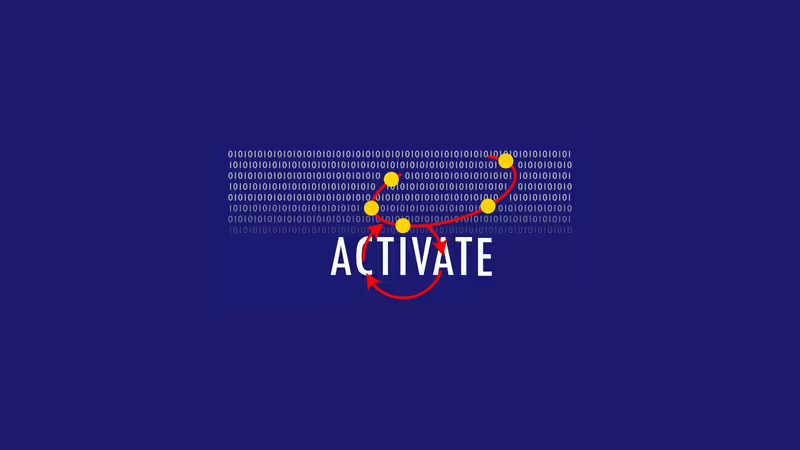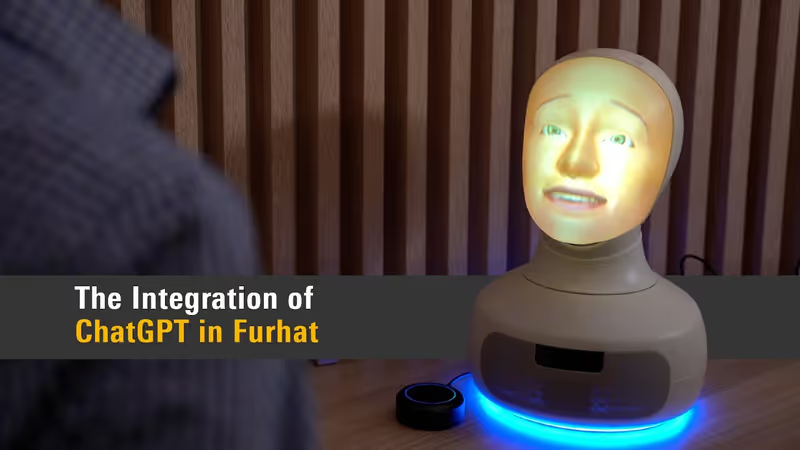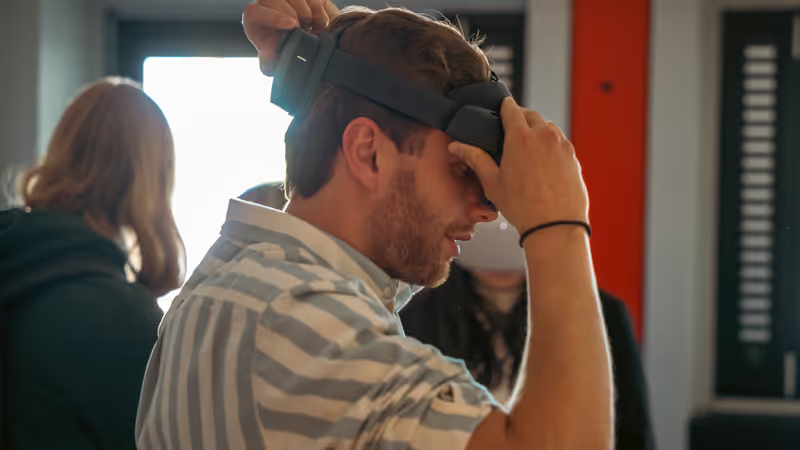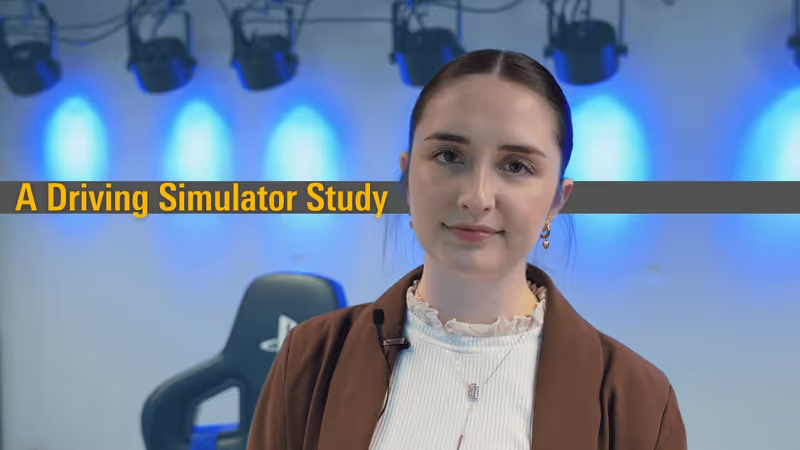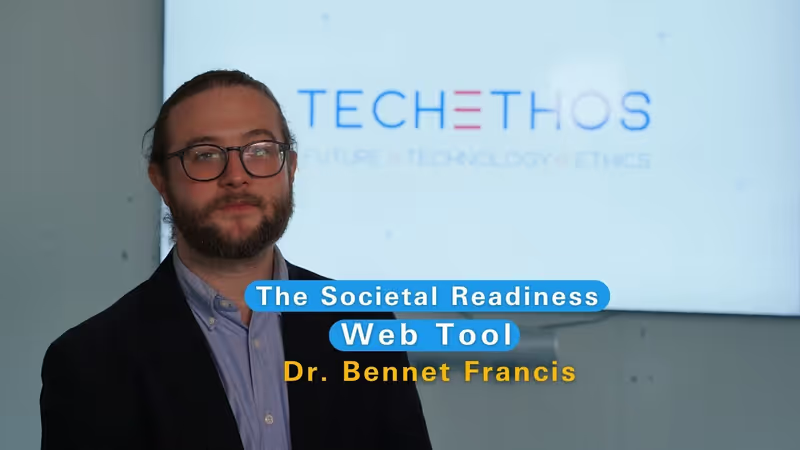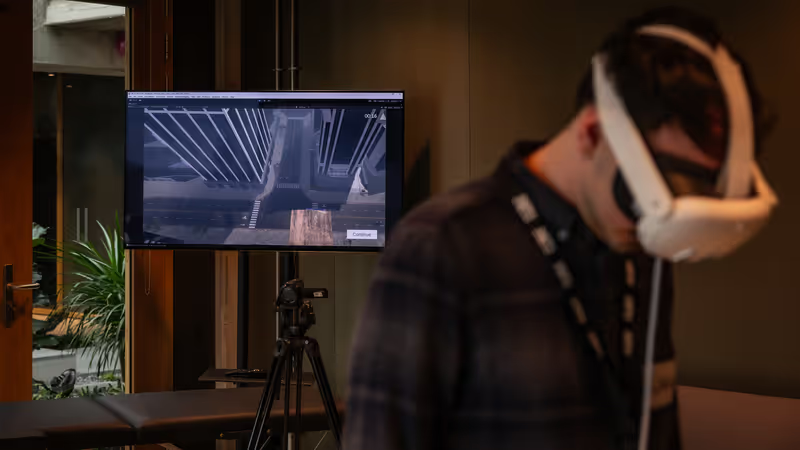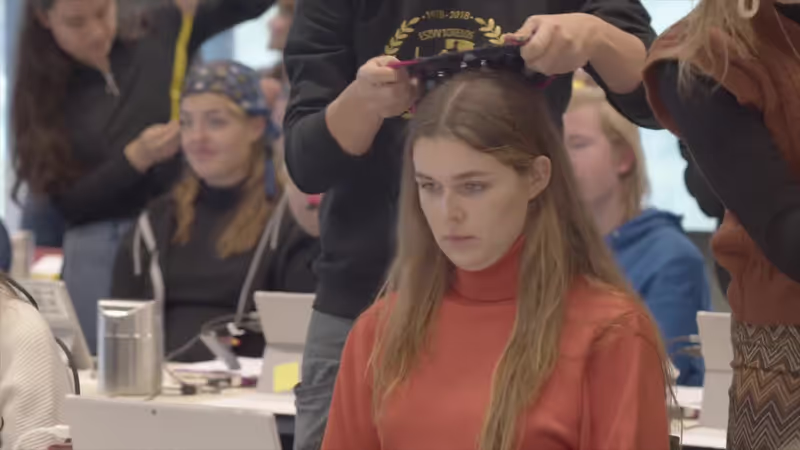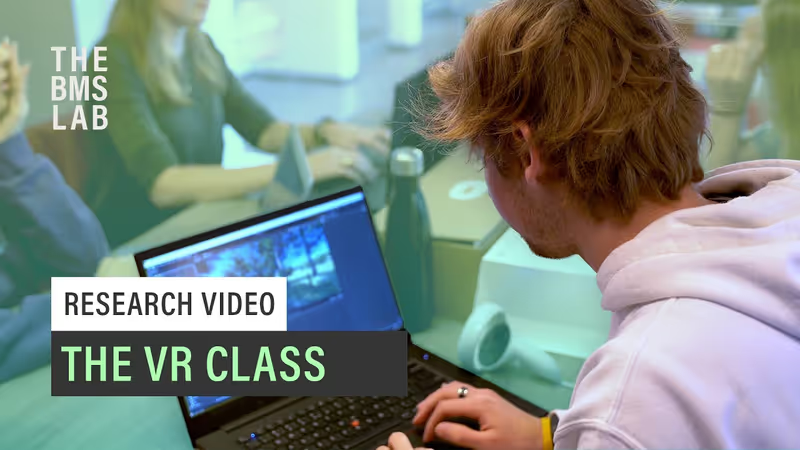Where technology meets life
The BMS Lab is the social science innovation lab at the University of Twente. Our mission is to infuse social sciences and technology by providing a research platform, consultancy, services, and lendable resources. Our core values are fostering cutting-edge research and educating the generation of tomorrow. With our 18 high-end lab facilities, a plethora of innovative equipment to carry out research, a mobile lab, and our team, The BMS Lab has facilitated and enhanced the cooperation of over 400 people across more than 300 projects yearly and an ever-growing research output.
Quicklinks
Our specialities
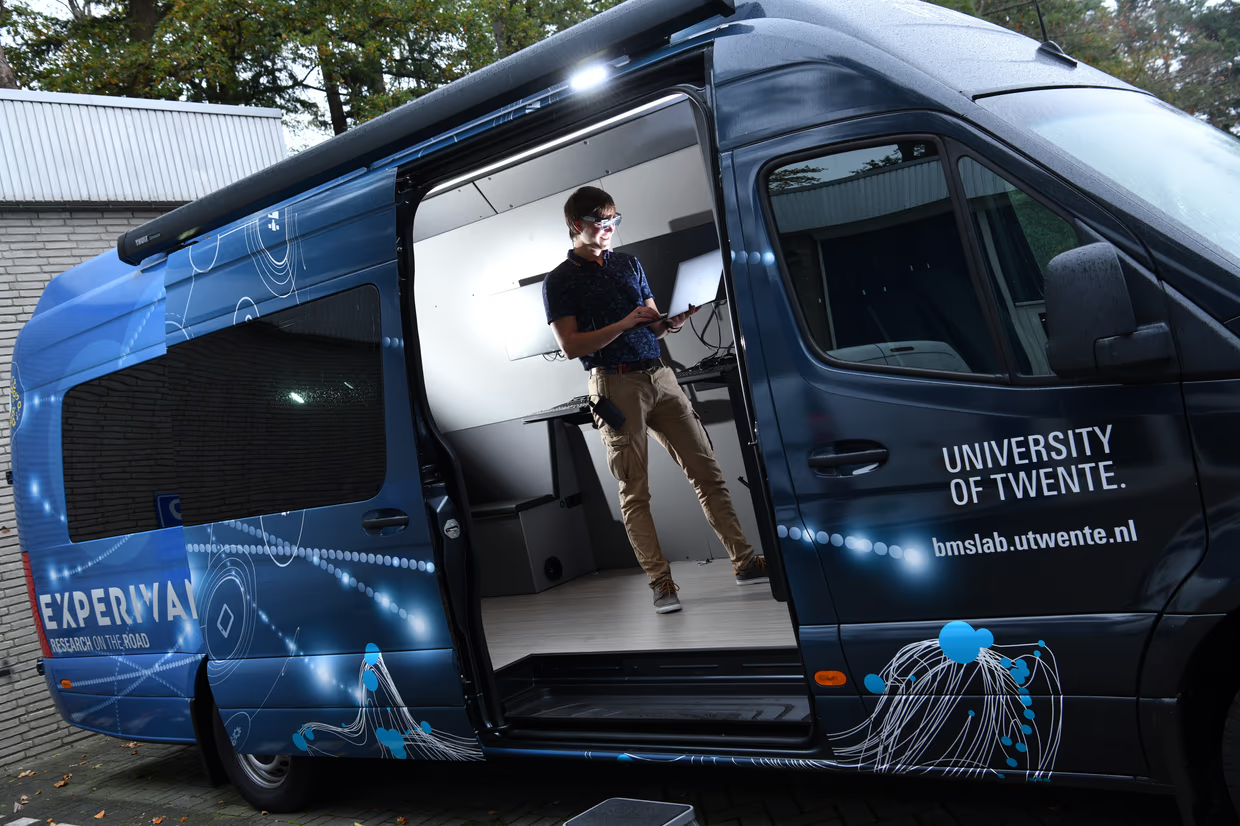
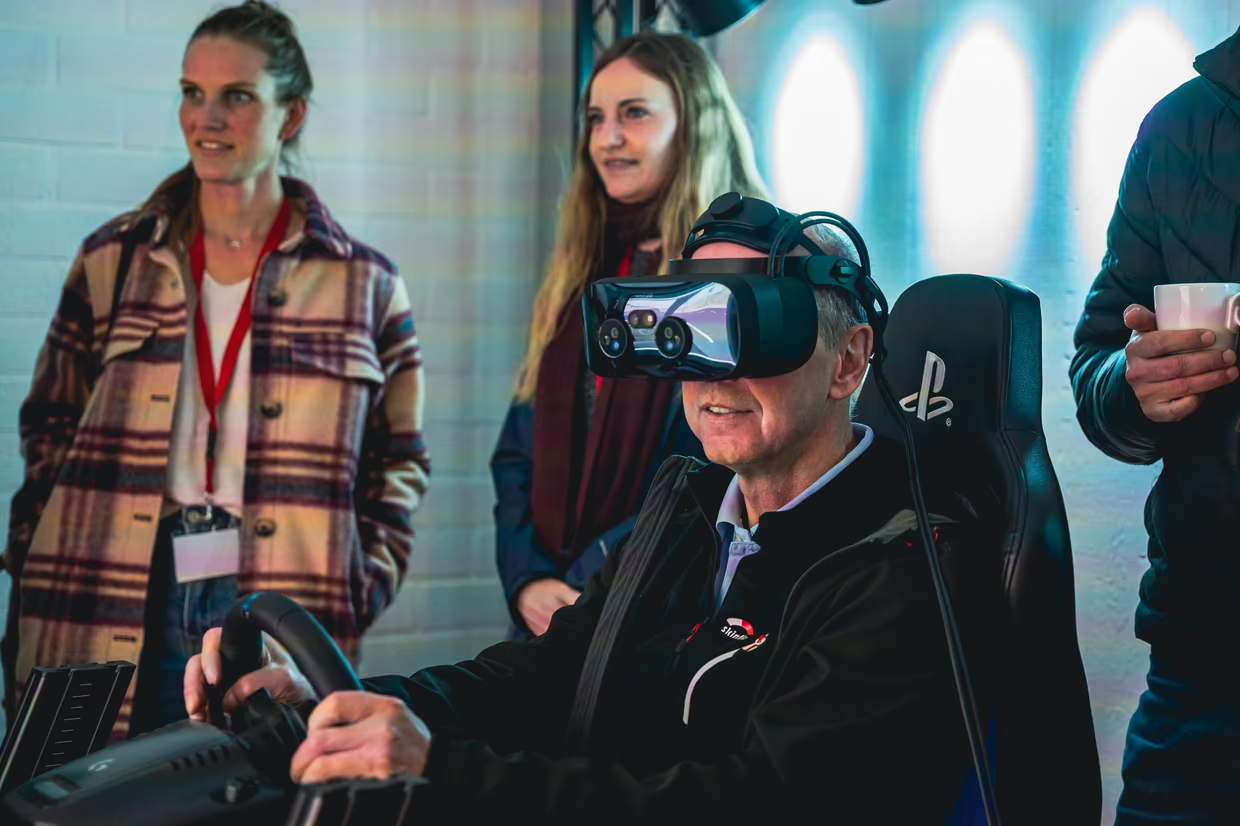

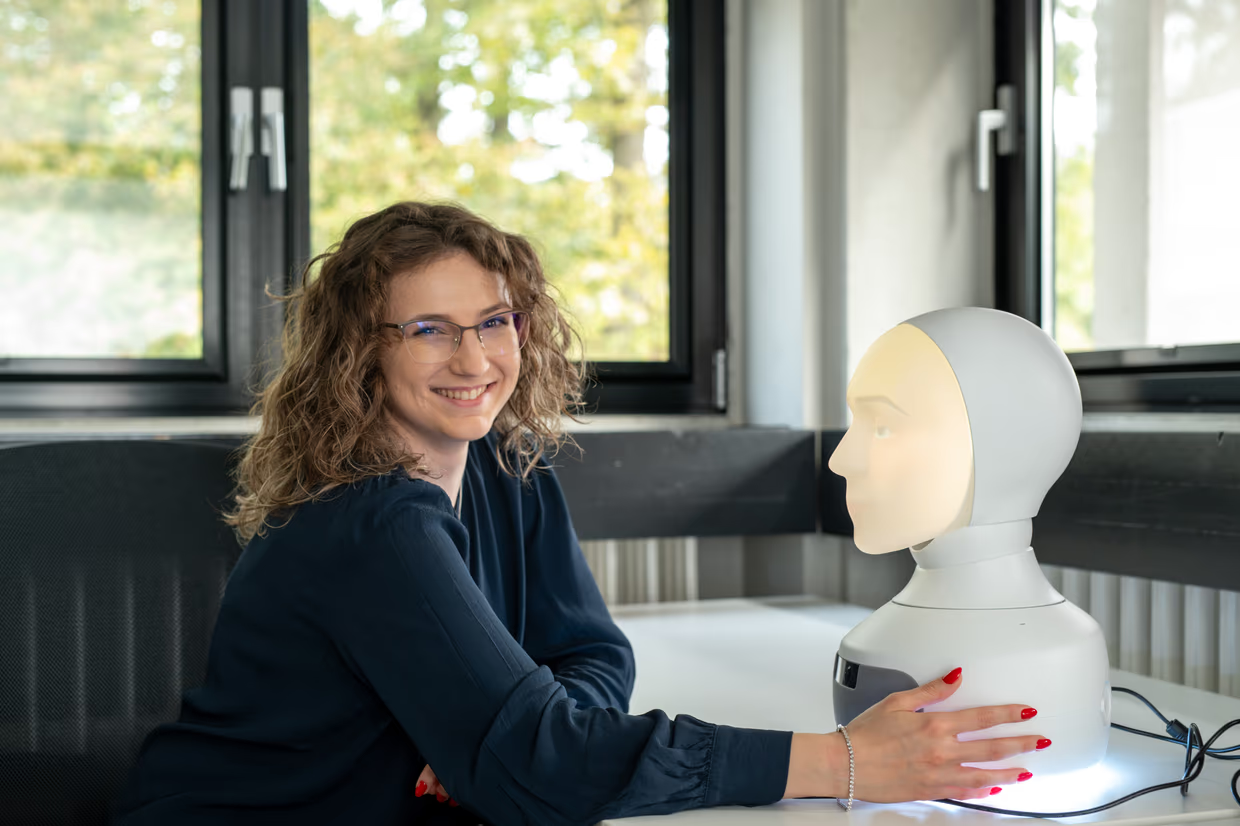
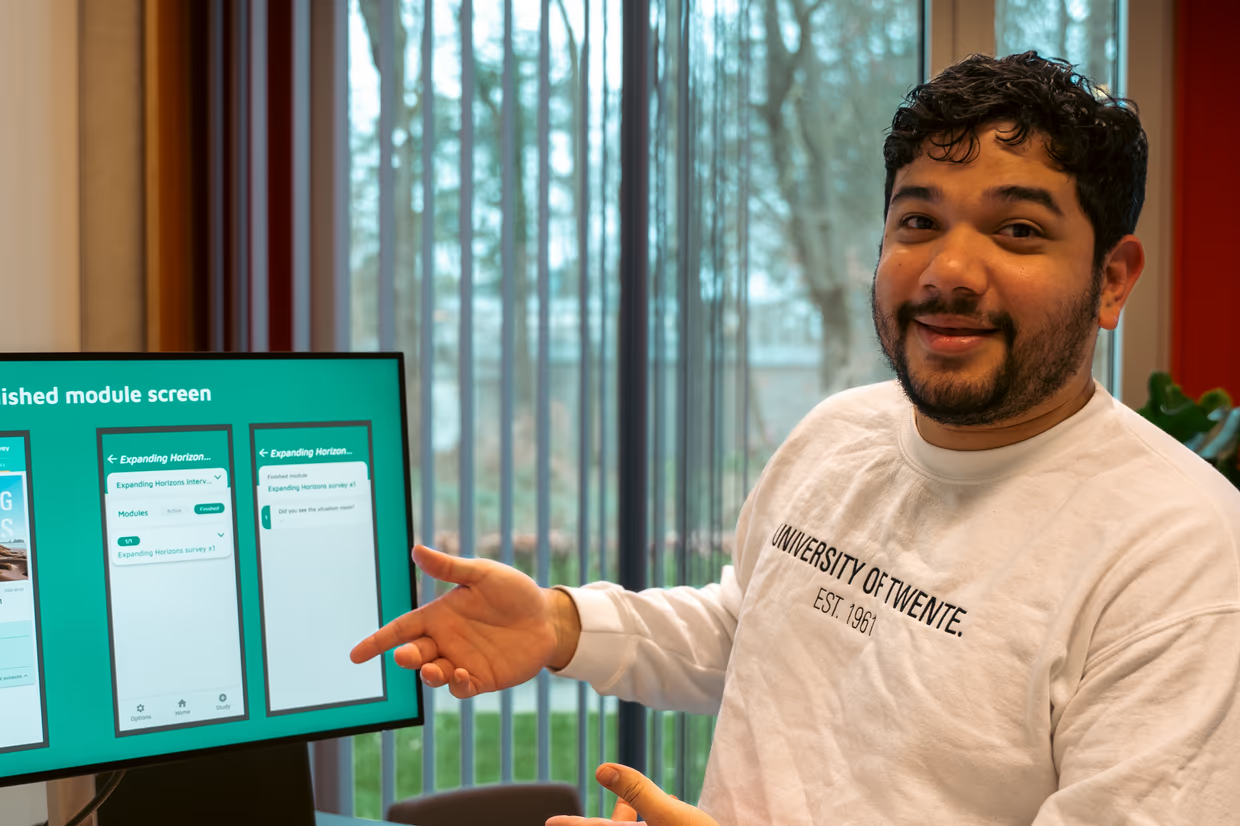
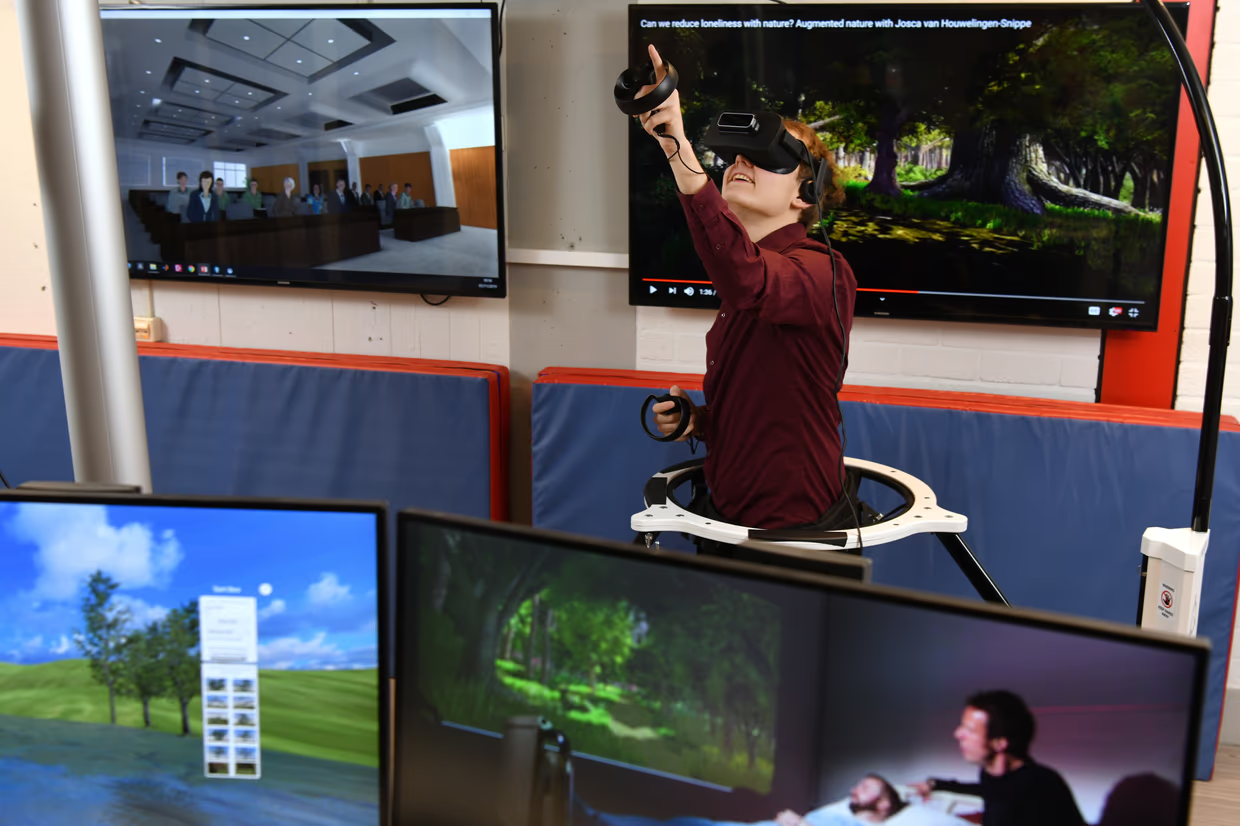
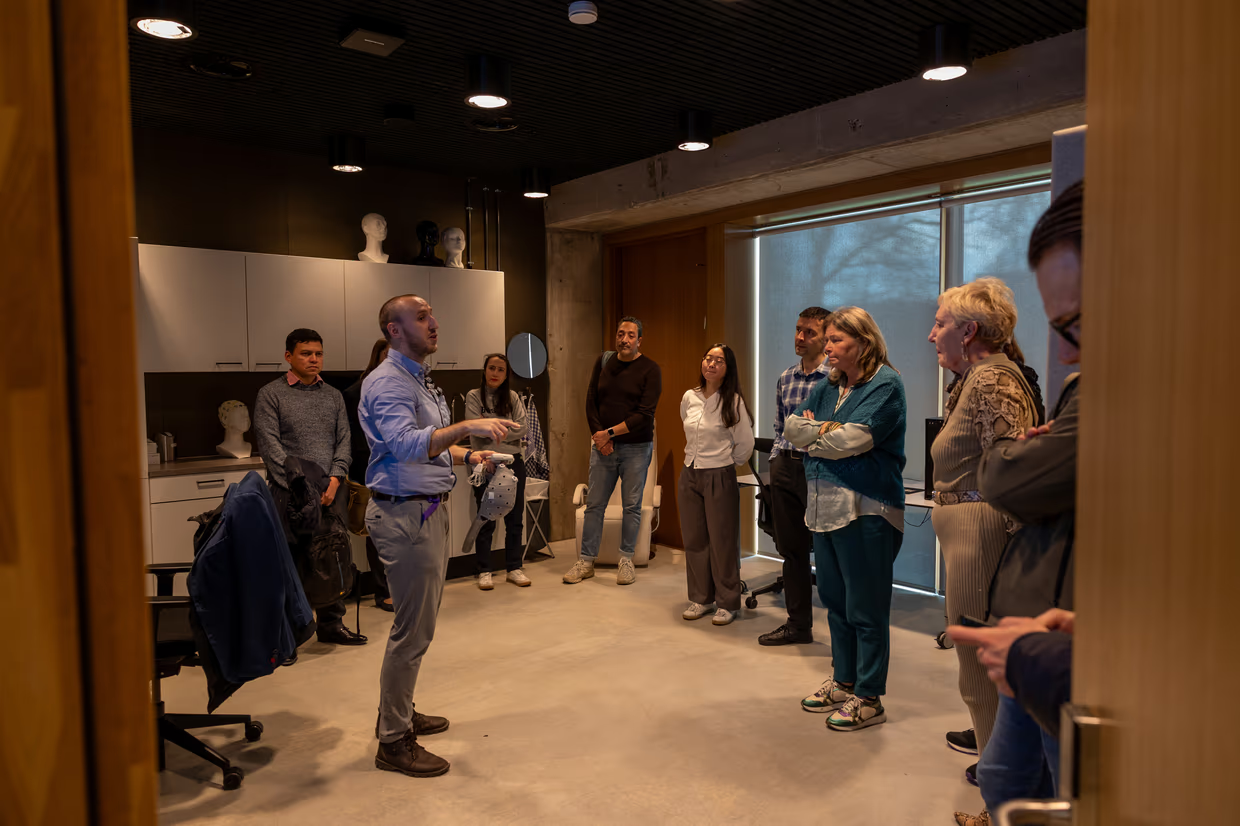
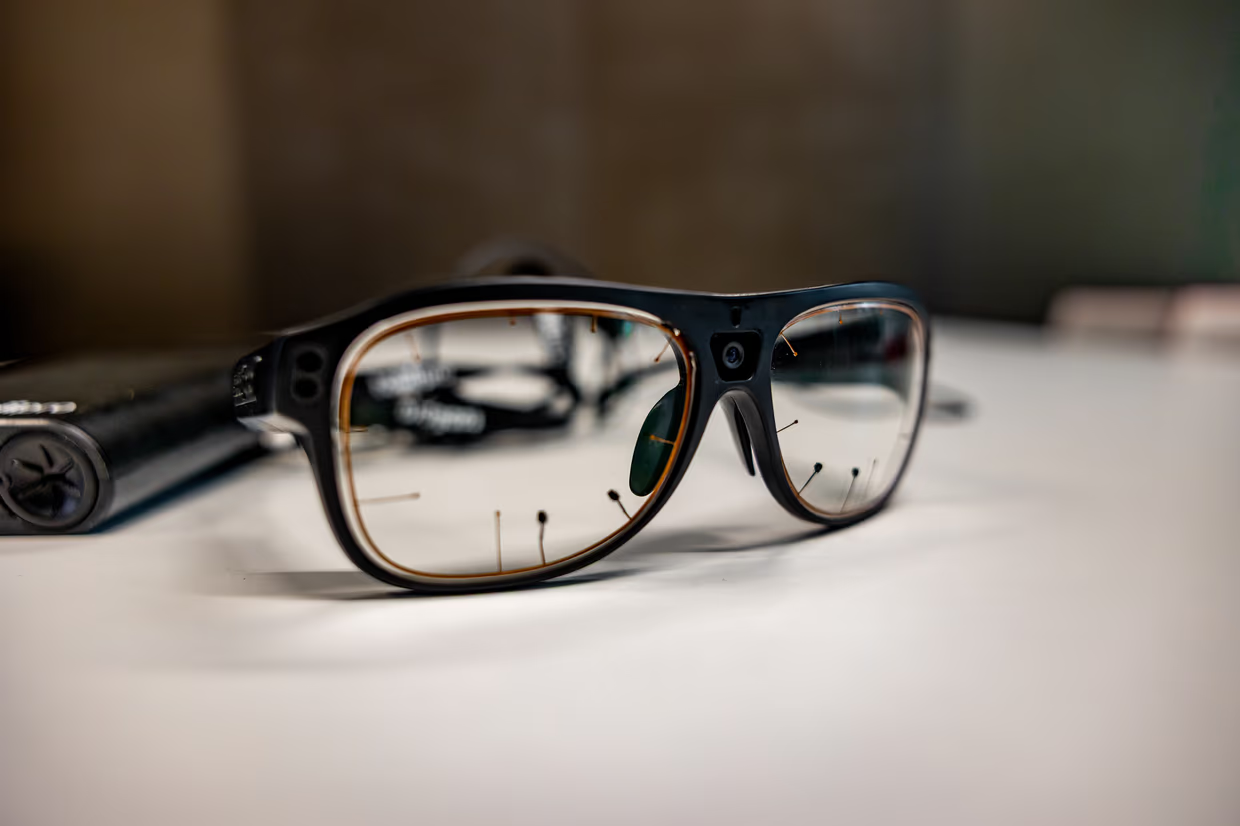
A collaborative partnership between University of Twente, Universität Münster, Leipzig University of Applied Sciences and Örebro University developing tools to improve training for managing chronic diseases in Europe’s aging population. Together with our partners, we will work on creating simulations, a feedback app, and a dashboard, tested with students. The goal is to enhance interprofessional learning and collaboration for modern, team-based care.
Furhat is engineered to enhance human life quality through social interactions, facial expressions, and movements that replicate human behaviour. Hence, there is a compelling argument for the incorporation of socially assistive robots in settings and contexts where they hold the potential to bring substantial benefits to humans, especially within critical sectors like healthcare. The study aimed to create an effective persuasive system using Furhat to enhance patient adherence.
This project strengthens collaboration between the University of Twente (UT) and Tashkent University of Information Technology (TUIT) through interdisciplinary research in Virtual Reality for sustainability and AI-driven mobile coaching. This collaboration address global and regional challenges, with a focus on innovation, capacity building, and international academic exchange.
Our advanced driving simulator centre empowers researchers to conduct innovative experiments and training programs. Whether using projectors or immersive VR with eye-tracking, our tools support studies on driving behavior, cognitive load, and beyond. .
TechEthos, a project funded by the European Union, addresses the ethical considerations associated with upcoming technologies expected to have substantial socio-economic implications. The primary objective of TechEthos is to promote "ethics by design," embedding ethical and societal values into the early stages of designing and developing new technologies. To this end, together with researchers from the BMS Philosophy department, we developed a web tool, to aid in the design process.
Stress in Action leverages advances in technology and big data to study stress beyond the lab. The consortium fosters collaboration to explore how daily stress responses emerge from personal and contextual factors, how to measure stress reliably in real time, and when adaptive stress responses become harmful to mental and physical health. This research supports the development of new monitoring and intervention strategies to manage stress and its effe
BMS researchers worked on exploring the brain activity of students in a classroom setting. The students were following different styles of lecturing, from a more passive style where they only listened to the lecturer, to an interactive one where they were actively participating.
BMS and ITC have received an Npuls grant to develop Share XR, a collaborative ecosystem for sharing and reusing high-quality, open digital learning resources. Share XR promotes openness, continuous improvement, and lifelong learning across disciplines, empowering both teachers and students to co-create the future of education.
